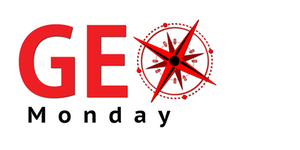- Home
- :
- All Communities
- :
- Worldwide
- :
- GeoDev Germany
- :
- GeoDev Germany Blog
- :
- Impressions from GeoMonday 2017.3 - Geo AI (powere...
- Subscribe to RSS Feed
- Mark as New
- Mark as Read
- Bookmark
- Subscribe
- Printer Friendly Page
- Report Inappropriate Content
On September 18th, the third GeoMonday of this year was held on the topic “artificial intelligence and geodata”. More than 30 good-humoured Geogeeks, well supplied with pizza and beer, listened to exciting lectures and discussed lively about them.
Did you miss this past GeoMonday? No problem, we have recorded all talks and took some pictures, see below. And don't worry, after GeoMonday is before GeoMonday. You can find all the details on meetup.com or here on GeoNet.
See you again soon!
Your GeoDev Germany & GeoMonday Team!

Michael Marz, Esri Deutschland:
How neural networks make GIS-supported crop production more efficient
High-tech has already arrived in agriculture. Modern agricultural machinery and geographic information systems make precision farming possible. An important aspect in crop production is the basic fertilization with nutrients and additives. The pH value can already be determined in a small scale and during the crossing of a tractor with specific sensors. For essential macronutrients like phosphorus, on-site soil sampling as well as complex and cost-intensive determination of the content in the laboratory are still necessary. Phosphorus content depends on chemical and physical soil conditions. If these conditions are known, the content of phosphorus can be estimated. This paper provides extracts from a research project on how neural networks help to estimate local phosphorous content for fertilization by learning those nonlinear multilateral relationships in the soil.
Martin Wilden and Matthias Stein, con terra:
Natural language understanding in web mapping applications
"Will speech soon do away with typing?" - This question has recently been raised by a large German newspaper. Lately, more and more speech assistants like Google Assistant, Amazon's Alexa, Mircosoft's Cortana or Apple's Siri are reaching the market and allowing users to control many parts of their life by voice input. This technology is called natural language understanding (NLU) and may also be used to control Web mapping technology. Imagine that you could say "show me all schools in Berlin" instead of using a selection tool to select those features.
Some impressions:
You must be a registered user to add a comment. If you've already registered, sign in. Otherwise, register and sign in.